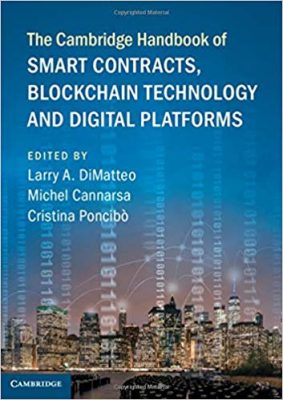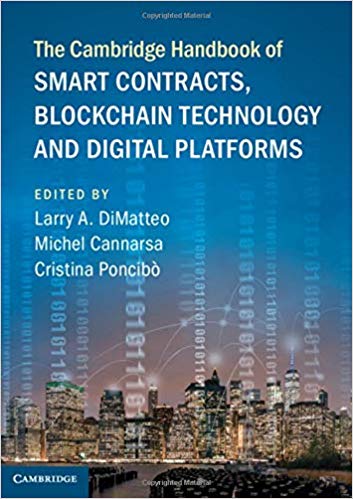 Editors: Larry A. Dimateo, Michael Cannarsa, and Cristina Poncibo
Editors: Larry A. Dimateo, Michael Cannarsa, and Cristina Poncibo
Publisher: Cambridge University Press – 366 pages
Book Review by: Sonu Chandiram
Business keeps on becoming more competitive on a daily business, and companies are working harder to protect their brands, ideas, medicines, physical products, software, and technologies. But changes, differences, modifications, and nuances in these assets are giving competitors the opportunities to carve pieces of the various markets for themselves, by registering them with the various governmental regulatory agencies.
In short, commerce becomes more complex as innovation and technology marches forward. What to do with increased complexity? Arm yourself with the information relevant o solving your particular problem or set of issues. Is the law on your side? Get this book to see if it might contain answers to your particular questions, if not at least shed some light on them. A team of academics, lawyers, and techies have worked to provide you this “dilemma dissolver.”
The team consists of 24 academic specialists in various aspects of law, attorneys, and technology experts from 10 countries – Austria, Canada, France, Hong Kong, Italy, Poland, Singapore, the Netherlands, the United Kingdom, and the United States – authored the 19 chapters of this book:
- Part I – General Framework – Legal and Technological
- Smart Contracts and Contract Law
- Definitions and Smart Contracts: Between Law and Code
- Technology of Smart Contracts
- Part II – Contract Law and smart Contracts
- Formation of Smart Contracts under Contract Law
- Challenges of Smart Contracts: Implementing Excuses
- Contract interpretation
- Smart Contracts: Contractual and Non-Contractual Remedies
- Part III – Electronic Platforms and Networks
- Digital Platforms: Regulation and Liability in EU Law
- Blockchains: A Technology for Decentralized Marketplaces
- Regulating Smart Contracts and Digital Platforms: A Chinese Perspective
- Part IV – Privacy, Security and Data Protection
- Blockchain and Data Protection
- Data Protection in Hybrid Worlds
- Smart Contracts; Issues of Property and Security Rights
- Algorithmic Contracts and Consumer Privacy
- Part V- Smart Contracts: Courts and the Legal Profession
- Smart Contracts and the Courts
- Usefulness and Dangers of Smart Contracts in Consumer Transactions
- Part VI – Future of Smart Contracts, Blockchain, and Artificial intelligence
- Smart Transactional Technologies, Legal Disruption, and the cse of network Contracts
- Observations on the Impact of Technology on Contract Law
- Visions of the Future: Smart Contracts, Blockchain and Artificial Intelligence
Editors:
Larry A. Dimateo is Huber Hurst Professor of law at the University of Florida. He is the former editor of the American Business Law Journal, a 2012 Fulbright Scholar at the University of Sofia, and author or co-author of 120 publications, including 12 books. His research interests are in the fields of contract law, international sales law, and legal theory.
Michael Cannarsa is Associate Professor and Dean at Lyon Catholic University Faculty of Law. His areas of interest are international and European law, commercial law, comparative law, consumer law, law of obligations, and legal translation.
Cristina Poncibo is Associate Professor of Comparative Private Law in the Department of Law at the University of Turin in Italy. Here research interests are in the fields oc comparative law, comparative contract law, private law, and market regulation.







